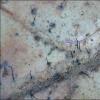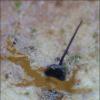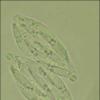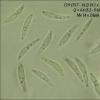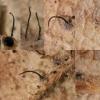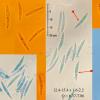
16-02-2026 21:25
 Andreas Millinger
Andreas Millinger
Good evening,failed to find an idea for this fungu

08-12-2025 17:37
 Lothar Krieglsteiner
Lothar Krieglsteiner
20.6.25, on branch of Abies infected and thickened

17-02-2026 17:26
 Nicolas Suberbielle
Nicolas Suberbielle
Bonjour à tous, Je recherche cette publication :

15-02-2026 04:32
One more specimen that is giving me some descent a

17-02-2026 13:41
Isabelle CharissouBonjour, est-ce que quelqu'un pourrait me fournir

16-02-2026 18:34
 Thierry Blondelle
Thierry Blondelle
Bonjour,La micro de cet anamorphe de Hercospora su

16-02-2026 17:14
Joanne TaylorLast week we published the following paper where w

16-02-2026 16:53
Isabelle CharissouBonjour, quelqu'un pourrait-il me transmettre un
This gnomoniaceae grows abundantly on leaves of Quercus.
Size: 350 - 400 x 280-350um. Neck 900-1300 x 45-50.
Asci: 30-33 x 9-13um. Apical apparatus 2um
Spores: 13-15 x 2-3um, noncentral septum (60% -40%). With small appendages (2-3um) at the ends.
Initially I thought it was Ophiognomonia setacea, but lacks the central septum. It looks like gnomnia incrassata, but the neck is long and slightly smaller spores, and the host is Quercus.
Do not know whose it is?
Can anyone identify the species?
Thanks in advance
Susana (Spain)?
Very good !
Alain
Thank you, Alain!
Gracias Enrique, pero creo que no es dificil encontrarla, de hecho, he recogido al azar hojas de roble (en bosque mixto con pino) en lugares distintos y en casi todas estaba presente (comprobando al micro). Esto es en Sarasibar (Navarra), una zona que creo ya has visitado.
Saludos.
Susana
Gracias Susana
Hi spanish friends,
Last week, I have collected easily this Gnomonia. Same features, and I also can note appendages, feature not seen in swissen collections.
It should be G. kisslingii. But I send it to Donny Walker in order to have its molecular sequency.
Best wishes,
Alain

J'ai aussi trouvé cette espèce , cependant, je lis dans la monographie de Monod que les spores sont dépourvues d'appendices .
Y a t il eu confirmation ultérieurement à sa publication que G. kisslingii a bien des appendices ?
Amitiés
Michel
Rien de neuf depuis cette mointaine époque. Donald avait arrêté les Gnomoniaceae. Le sujet mériterait d'être creusé.
Alain

